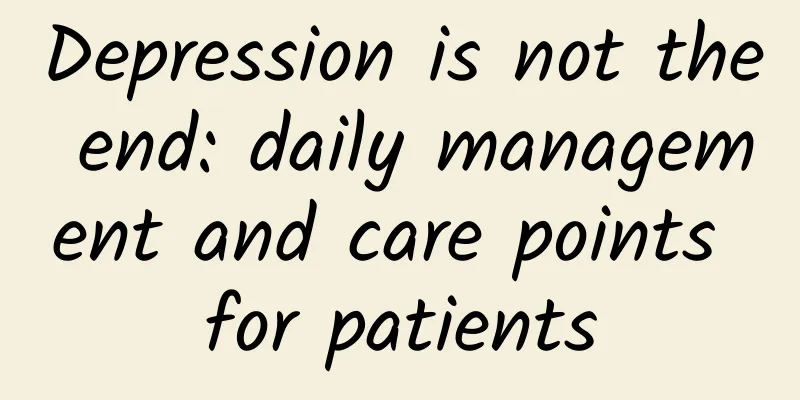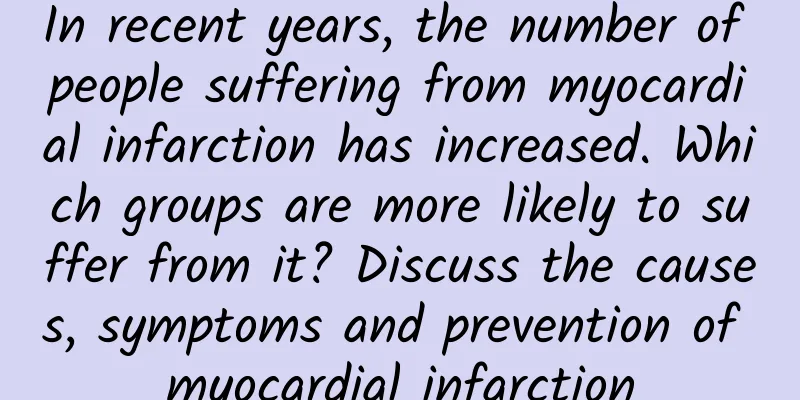Depression is not the end: daily management and care points for patients

|
In the fast-paced modern society, more and more people are beginning to pay attention to mental health issues. Among them, depression, as a common psychological disorder, has attracted much attention. Depression is not just a state of "bad mood", it is a mental illness that needs to be taken seriously and treated. However, depression does not mean the end of life. Through scientific daily management and care, patients are fully likely to regain the color and vitality of life. 1. Understanding Depression Depression is a common psychological disorder, also known as depressive disorder or clinical depression. It is an affective disease characterized by a significant and persistent low mood, often accompanied by symptoms such as loss of interest, loss of pleasure, and reduced energy. This emotional state is different from everyday sadness or loss. It usually lasts for a long time and affects an individual's daily life, work, and social functions. The core symptom of depression is persistent low mood. Patients may feel sad, hopeless or empty for a long time. They lose interest in daily activities, and even activities that they once enjoyed cannot bring them joy. In addition, patients with depression may also experience symptoms such as sleep problems (such as insomnia, early awakening), changes in appetite (increase or decrease), fatigue, difficulty concentrating, negative self-evaluation, self-blame and helplessness. In severe cases, patients may even experience suicidal thoughts or behaviors. The causes of depression are complex and diverse, including the combined effects of genetic, biological, psychosocial and environmental factors. Traumatic events in life, such as the loss of a loved one, unemployment, marital problems, etc., as well as long-term psychological stress, interpersonal relationship problems or chronic diseases, may increase the risk of depression. In addition, individual personality traits, family background, social support, etc. can also affect the occurrence of depression. Depression is a treatable disease. Effective treatments include medication and psychotherapy. Medication is to relieve symptoms by taking antidepressants, but it needs to be done under the guidance of a doctor. Psychological therapy, such as cognitive behavioral therapy (CBT) and psychodynamic therapy, can help patients change negative thinking patterns, develop positive coping strategies, and provide emotional support. It is important to recognize that depression is a real illness, not simply a low mood or a character flaw. People with depression should be treated with understanding, support, and compassion. Early identification and treatment of depression is crucial because it can improve the patient's quality of life, reduce suffering, and reduce the risk of suicide. If you or someone close to you has symptoms of depression, please seek professional medical help promptly. 2. Daily management of depression The daily management of depression is a multifaceted process that involves lifestyle habits, emotional regulation, social interactions, etc. Here are some specific suggestions: 1. Regular work and rest schedule and adequate sleep Establish a regular daily schedule and try to get up and go to bed at the same time to help adjust your body's biological clock. Make sure you get enough sleep every day. It is generally recommended that adults get 7-9 hours of sleep per night. If your sleep quality is poor, you can try to improve your sleeping environment, such as adjusting the room temperature and reducing noise. 2. Healthy diet and water intake Maintain a balanced diet with adequate vitamins, minerals and protein. Increase your intake of fresh fruits, vegetables, whole grains and lean meats. At the same time, avoid excessive intake of stimulants such as caffeine, sugar and alcohol, which may aggravate depression symptoms. In addition, maintain adequate water intake to help the body metabolize and detoxify normally. 3. Moderate exercise and outdoor activities Choose a form of exercise that suits your physical condition, such as walking, jogging, yoga or swimming. These exercises can release happy hormones such as endorphins, which help improve your mood. Try to arrange some outdoor activities every day to get in touch with natural light and fresh air, which can help relieve stress and improve your mood. 4. Emotion Regulation and Relaxation Techniques Learn some emotion regulation techniques, such as deep breathing, meditation, mindfulness exercises, etc. These techniques can help patients stay calm when stress or negative emotions come. Try some relaxing activities, such as listening to music, drawing, writing in a diary, etc. These activities can help patients divert their attention and relieve depression symptoms. 5. Stay social and seek support Try to stay in touch with your family and friends and share your feelings and experiences. Social interaction can provide emotional support and reduce loneliness. Join some interest groups or social activities to meet new people and expand your social circle. This can help patients regain the fun and purpose of life. 6. Avoid self-isolation and negative thinking Try to avoid being alone for long periods of time or dwelling on negative thoughts. When you feel frustrated or helpless, try to communicate with others or seek professional help. Cultivate a positive attitude and thinking pattern, focus on your own strengths and achievements, and learn to motivate and encourage yourself. 3. Nursing tips for depression In addition to daily management, care for patients with depression is also crucial. The following are some care points: 1. Closely observe changes in the patient's condition: Family members should pay close attention to changes in the patient's mood, sleep, appetite, etc., and promptly detect abnormal conditions and take measures. 2. Provide psychological support: Family members should give patients full understanding and support, encourage them to express their feelings, and listen to their voices. Creating a relaxed and harmonious family atmosphere will help patients recover. 3. Assist in treatment: urge patients to take medication on time and regularly accompany them to the hospital for psychological counseling and treatment. Learn about depression and help patients cope with the challenges brought by the disease. 4. Prevent suicidal behavior: Depressed patients may sometimes have suicidal thoughts. Family members should pay close attention to the patient's words and deeds, and take timely measures to ensure the patient's safety if any abnormalities are found. Conclusion Depression is a psychological disorder that needs to be taken seriously and treated. Through scientific daily management and care, patients can regain the color and vitality of life. I hope that the introduction of this article can help patients and their families better cope with the challenges of depression and move towards a healthy and happy life. Author: Tang Xueqiu, Fourth People's Hospital of Chengdu, Sichuan Province |
<<: The causes and daily prevention of hypertension keep you away from the "silent killer"
>>: Emotional disorders are not difficult to understand, and there are some tips for daily care
Recommend
What can I eat to reduce internal heat during menstruation?
In life, many female friends always have problems...
Is it possible to get pregnant while wearing a condom?
Condoms are the most common contraceptive tool in...
Less milk during menstruation
Will I have less breast milk if I have my period ...
Medicines that promote blood circulation, remove blood stasis, and shrink the uterus
Women are likely to experience dysmenorrhea durin...
What are the effects of getting angry during confinement?
Confinement is a very special period for women. I...
What is the reason why pregnant women sweat at night?
Postpartum women are a group we care about very m...
Causes of vaginal pain during intercourse
Many female friends may find that their vagina is...
Vaginal cleanliness 2 degrees
Many female friends actually do not understand wh...
Can Chinese medicine dredge the blocked fallopian tube?
Many female friends have blocked fallopian tubes,...
Dysmenorrhea Treatment with Traditional Chinese Medicine
Dysmenorrhea is a common problem for women, becau...
How to determine whether the fetal membrane has been expelled?
After giving birth in the late stages of pregnanc...
What are the methods for women's daily health care
Women need care, because women's youth cannot...
Make your own matcha bread at home, sweet and soft, kids love it!
Bread is a staple food that often appears in chil...
What should I do if I have scanty menstrual flow due to phlegm-dampness?
The presence of phlegm and dampness in women'...
Can I eat seafood during my period?
Seafood tastes very smooth and delicious, and it ...









